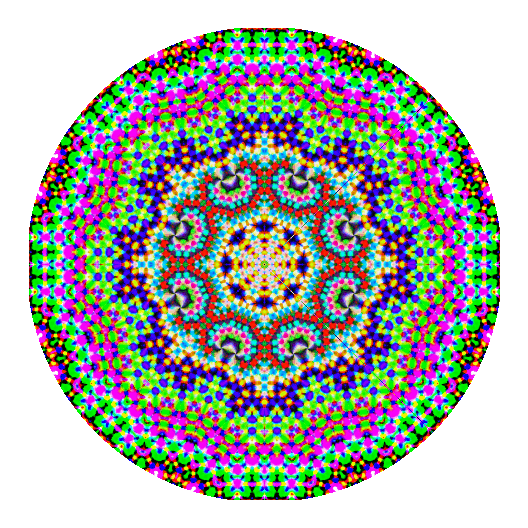Unrestricted Warfare: A Review
 Strategy is not an American strength. Strategic plans are written to serve the interests of political parties and the election cycle, factions within the Pentagon and military industrial complex seeking billions of dollars for next-gen weapons system, or at best a small group of dissident colonels seeking promotion or post-retirement sinecures. Everybody has an agenda, and almost nobody is conducting honest analysis in search of the truth. The authors of Unrestricted Warfare are coming from outside the Beltway; way outside the Beltway, as they're officers in the People Liberation Army. With no DC career to worry about, there's at least the potential of some candid truth about the future of warfare, and besides as a Chinese strategic plan, reading this has the same kind of vicarious thrill as reading Guderian's Achtung-Panzer! in 1938.
Strategy is not an American strength. Strategic plans are written to serve the interests of political parties and the election cycle, factions within the Pentagon and military industrial complex seeking billions of dollars for next-gen weapons system, or at best a small group of dissident colonels seeking promotion or post-retirement sinecures. Everybody has an agenda, and almost nobody is conducting honest analysis in search of the truth. The authors of Unrestricted Warfare are coming from outside the Beltway; way outside the Beltway, as they're officers in the People Liberation Army. With no DC career to worry about, there's at least the potential of some candid truth about the future of warfare, and besides as a Chinese strategic plan, reading this has the same kind of vicarious thrill as reading Guderian's Achtung-Panzer! in 1938.
The book begins promisingly enough, with chapters like "The War God's Face Has Become Indistinct" and "What Do Americans Gain By Touching the Elephant?". The introduction offers as a sensible reframing of modern warfare as I've ever seen. "We acknowledge that the new principles of war are no longer 'using armed force to compel the enemy to submit to one's will,' but rather are 'using all means, including armed force or non-armed force, military and non-military, and lethal and non-lethal means to compel the enemy to accept one's interests'"
The authors take as their key examples Operation Desert Storm, the 1997 Southeast Asia Financial Crisis, and the unlimited potential of cyberattacks carried out by hackers. Their analysis of Desert Storm is perhaps the most conventional section, examining in detail the successful organization of the operation under Norman Schwarzkopf, and the use of precision air power as the preeminent aim. Unfortunately, the financial crisis and the role of George Soros fails to illuminate what I can only describe as the 'Soros Conspiracy Twilight Zone.' While several Asian economies suffered massive reverses, and George Soros made a lot of money in the process, the accusation that he was responsible is not sustained (or unsustained for that matter. The issue remains open, as far as I can tell). Given the centrality of financial, economic, and media warfare to the concept of unresistricted warfare, this section deserves better. Finally, cyber attacks are treated mostly anecdotally, without a rigorous idea of the linkages between cyberspace and physical systems, or virtual attacks and real damage.
That said, there are some very clever insights into the strengths and limitations of America's high-tech Battlespace model of combat, where every soldier is networked into a regional grid that can cause any location to precisely explode at short notice (the deadliest environment on Earth, short of a nuclear firestorm) in terms of it's cost and inability to counter low-tech insurgent forces. For a pre-9/11 work, this book is horrifically prescient in linking Al Qaeda and airplanes. Conversely, key topics in strengthening local governance and legitimacy and fostering robust innovative economies not vulnerable to unrestricted warfare are mostly left out.
The original lacks the hyperbolic and inaccurate subtitle 'China's Master Plan to Destroy America' (my copy is from the nice folks at www.c4i.org). The examples are American, because America is the world's premier power, and are fairly critiqued on their strengths and weaknesses. While some parts of China's military are clearly aimed American capabilities, the ideas advanced here are seem to be more about countering and emulating American power, rather than crippling it.
As a guide to the future, Unrestricted Warfare will probably not have the impact of Clausewitz, Liddell Hart, or John Boyd. While it offers a important alternative perspective to the conventional wisdom, it's too foreign, too abstract, too hard to apply. By the standards of this book, the last 10 years of American foreign policy have been an unmitigated disaster, but I don't think the American government could ever act in such an integrated manner without a clear existential threat. I think the most trenchant critique of this book is that more than 10 years later, it's difficult to detect a coherent unrestricted warfare strategy behind China's domestic policies, provocations in the South China Sea, and African development projects. For now, unrestricted warfare is more theory than practice.

No comments:
Post a Comment